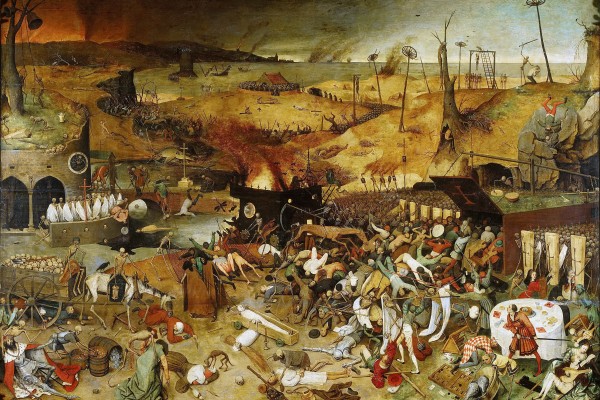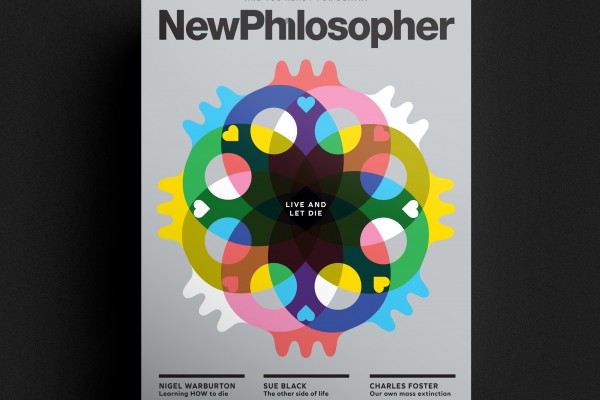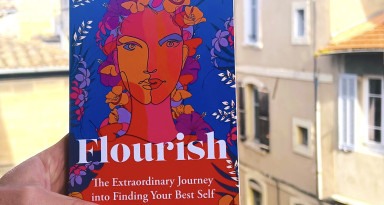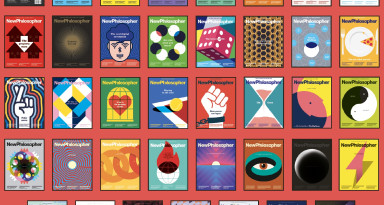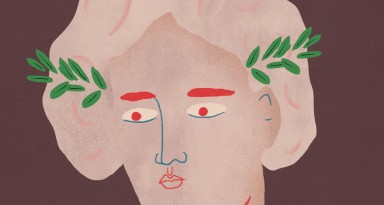By Dr Wolfgang Gillier
Death is always a family affair. When you have one family, or two. But then who defines ‘the’ family? Is it the deceased’s ‘first family,’ the first wife, the first children, or is it the new life partner who typically is much younger and who almost exclusively has visited the dying patient in the hospital on a daily basis during the past weeks and months? So – when the family member finally passes on, after a drawn-out battle with cancer, for instance, who should be called? The next of kin in the official medical record? The gray-haired attorney who spent an entire afternoon a month ago to rewrite the patient’s final will? Who left instructions? To whom? When? Proxy anyone? Death, the inquisitor.
And then, most people are not afraid of death or dying but are afraid of how they will be dying: gently in one’s sleep? With pain and agony? With fear or with resolve? It is almost as if the person’s character is exposed under a high-powered microscope. Learning about a patient’s approach to her or his death is often unexpected, and it is the sense of rebuilding that becomes so refreshing. The stark process of dying becomes the person’s true and naked authenticity, even if but fleeting, at that very end moment. Yes, refreshingly reassuring and in a strange way, liberating. Death, the liberator.
If something practical was impressed upon me, at the naïve age of 20 years old, during the time I started working in various units in the hospital, apprenticing myself to become something that might generally be described as a licensed practicing nurse, it was that there was one medical record entry that required the name of the ‘closest relative’. Something that I soon would find woefully inadequate and strange.
Ultimately, when I started working as a physician ten years later, I would simply ask the patient, right at the time of admission, albeit tactfully and almost in a jovial manner: “who is the person you would like us to call first if something happens to you – if things take a turn for the worse? Or if – God-forbid – should you die.” It was the (the) question that often provided an entry for most of ‘my’ patients to open up to me. Having worked in the hospital kitchen during my first post high school summer and then having taken the formal course in practical nursing training, I had a ‘grounds-up’ insight into the world of medicine, and that of dying, in particular. From the wearing of the grey kitchen protective covering to the white doctor’s coat, every experience in the hospital added one more piece to my growing mosaic of learning first-hand about the human condition and its intricate connection to death. I was given the privilege to be with patients who would soon die. I was there; sometimes just sitting, sometimes just listening. Sometimes just providing the final bath. Death, the invitation to see.
While for many, if not most, medical students their first patient is the cadaver to whom they are introduced in a group format during the anatomy dissection exercises, my first patient was a physician himself. I met him, in the form of an indirect introduction – not in person but in the hot, balmy, and slippery kitchen where I had just started to work a summer job. For every meal the patient’s folded name card would bounce by in the rhythm of the rickety conveyor belt. As Dr Nouvel’s breakfast tray reached my position for the addition of bland toast with trimmed edges and a small portion of butter and jam, I started to wonder how anyone could get well with a meal that would not nourish even a stray sparrow. Especially when the other trays competed with each other in forms of healthy breakfast portions with thyme- and onion-laced potatoes, strikingly yellow omelettes with green chives, and regional orange-tinged mushrooms. And then, with every breakfast, lunch, and dinner, the sparse food platings would repeat themselves. I soon found out that Dr Nouvel was a surgeon who had been a patient for months in the eye unit, after a slow growing cancer had the unbridled audacity to usurp the neighbouring tissues as well and eat its way through the eye socket to the back of the mouth and more. I did not find out if Dr Nouvel was in pain or able to see at that time. I was told that it was viewed as a miserable situation, and everyone was waiting for the ‘end’. I remember the word ‘end’ and the question everyone asked: “When will it end?” Everyone danced around the word ‘to die’ or ‘death’, almost as if the cancer had become a repulsive infectious agent to be avoided at all cost. Death, the unwelcome.
I was not sure if I was just unwelcome or yet another ‘support’ personnel when I first met Dr Nouvel. I was assigned to his room as a ‘sitter’ during winter and I remember my own apprehension to come face to face with the man about whom I had now been able to formulate both a ‘good’ and ‘bad’ side to his being. In his prime, so I had heard, Dr Nouvel was a gifted surgeon who would invent new techniques and love the most ‘difficult cases’ only to emerge with another life-saving approach. He had an international professional reputation and had conducted innovative seminars in which he brought both patients and physicians together in professional weekends in the beautiful spa town of Baden Baden in Germany. They called him a physician’s physician. And then I had been informed about his apparent moments of despair and aggression when he would lose his temper and throw things: he could vehemently critique the morning’s toast as he felt that it was too dry. What was most scary and off-putting to me was that he would yell at people directly and ask them to leave his room if he didn’t feel comfortable with them. Death, in living form.
The charge nurse would tell Dr Nouvel about my arrival and that I was a student in training and that he could rely on me to be there. He turned his propped-up face away to the left. I sat to his right. The bandages had just been removed and I was shocked to see that indeed at least one quarter of his face was absent from the jawbone down. In the few seconds that I was able to take an intense look at his face while standing during the introduction, I remember being able to recognise a wide, open passage from the right eye through the jaw bone and through the roof of the mouth to the back of the pharynx. The view was both shocking and mesmerising at once; I was strangely drawn to this savage aberration of nature. I wanted to see more, but quickly was asked to sit and attend to Dr Nouvel’s needs and wishes. He fell asleep promptly. The silence was astonishing, only to be interrupted by some sputtering deep breaths and coughing grunts. The head never turned to the middle or to the right. I sat quietly that afternoon. Barely moving. I had just heard a chilling rendition of Henry Purcell’s Dido and Aneas: “When I am laid, am laid in earth… may my wrongs create no trouble… Remember me, remember me… but ah, forget my fate.” Death, the quiet invader.
After coming to see ‘death in the eye’, the sitting sessions became another routine. With the patient asleep, I was able to quietly draw his upper torso and head posture in a number of ways with soft pencil on small paper sheets. I wanted to document it, perhaps to reassure myself that this was a real situation, one that was nonetheless strangely surreal. It was not about how the patient looked or appeared. It was more what he had to suffer and go through and that this was an ever so strikingly ugly process. I did not ask why. I did not ask, “Why him?” The drawings showed the agony of his breathing and the untimely wasting of both the hard and soft tissues. The body was the last thing to stay. The spirit had waned after what I had heard was an intense family conference, where the will had been updated once more in the presence of his trusted attorney and the station nurse. I heard that Dr Nouvel was the clearest he had been in a long time giving the most decisive directions as if directing traffic for the after-world. A world that once had been his. The slow growth that ultimately destroyed the man, the surgeon, the family head, allowed the sense of preparation for the inevitable, and perhaps a beautifully terrifying death: the ultimate balance to help negotiate meaning. Death, the giver of meaning.
I don’t recall who was called when Dr Nouvel passed.
This piece was the winner of New Philosopher Writers' Award XXV: Death; open to New Philosopher subscribers. To see more details about the next award and to submit an entry, see the details here.
